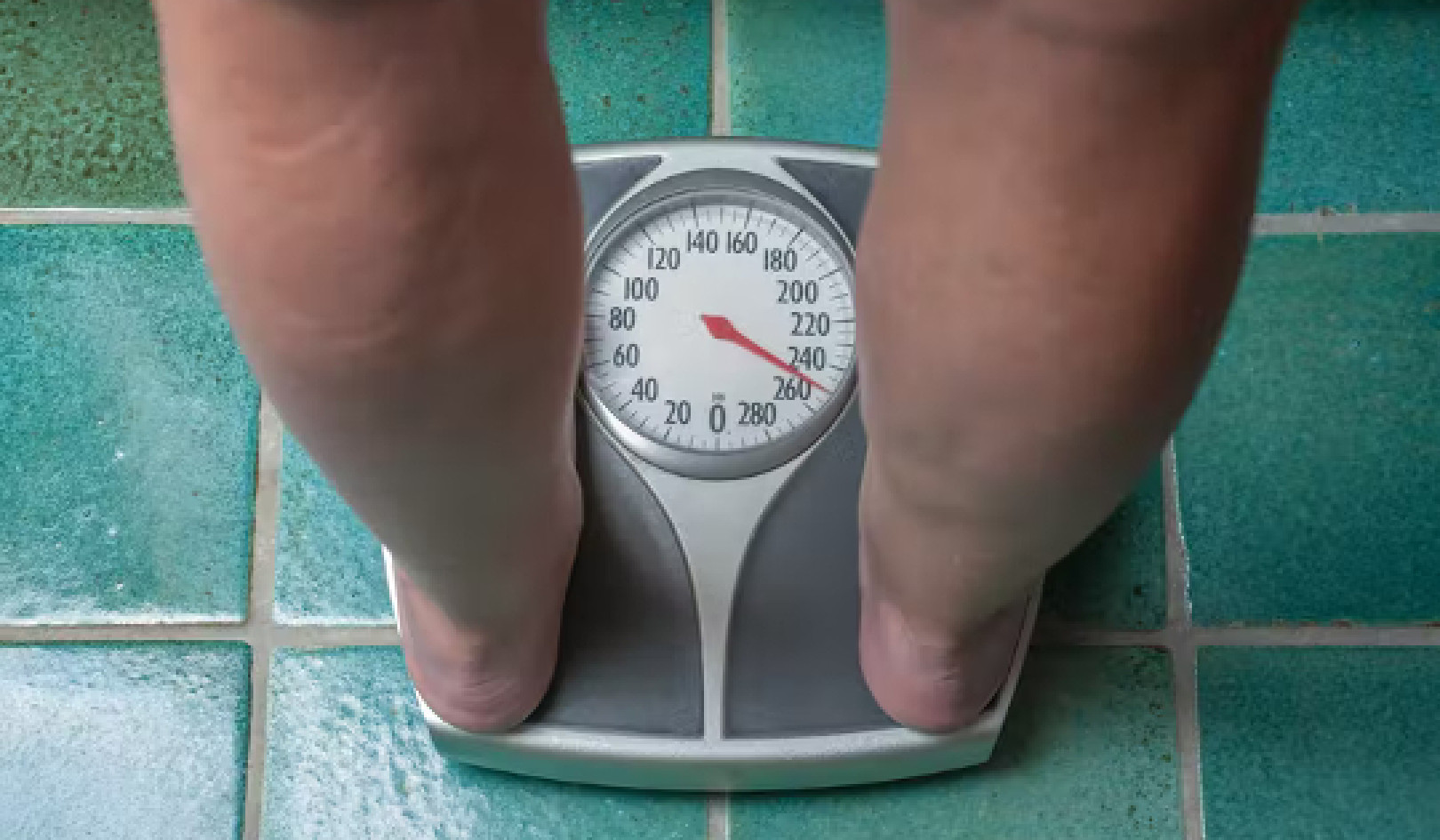
Being kind and compassionate to yourself can help you avoid focusing on your body in an unhealthy way. nelen/Shutterstock
As the coronavirus pandemic has spread, a growing number of people have been negatively affected not so much by the virus itself as by the response to it. One such group is those with eating disorders. Recent studies show many with conditions such as anorexia nervosa, bulimia nervosa and binge-eating disorder experienced a worsening of symptoms as well as increased anxiety in the early stages of the outbreak.
It’s too early to state conclusively the reasons for this, but it’s clear the pandemic and subsequent containment measures have disrupted everyday activities and changed routines. This may have left people feeling out of control, which can influence eating behaviour.
On top of this, the stress of living in the shadow of a life-threatening virus and even greater barriers to accessing treatment may have resulted in a greater focus on weight and shape. This in turn may have brought about changes in eating behaviour, such as “stockpiling” certain foods or using food for emotional comfort.
Given these challenges, this article is going to focus on how to support people who are struggling with their eating and mental health. These are some practical steps that anyone can take to mitigate the effects of the recent upheaval, which can be considered in addition to formal interventions provided by healthcare professionals.
Begin by regaining control
One way to start the process of reasserting control is to re-establish structure. Doing so will not only help manage the process of eating itself, but will also promote consistency and a reliable schedule across several areas of life – something many of us have struggled to find during lockdown.
Try creating a plan for eating that follows some simple guidelines around regularity – for instance, breakfast-snack-lunch-snack-dinner, no more than four hours apart. This may result in greater insulin sensitivity (where our cells use blood glucose more effectively) and aid in healthy weight control.
There’s also some evidence from treatment studies that regular eating is associated with early decreases in behaviours such as binge eating. There are also likely to be wider benefits, too. For example, sleep and eating are closely interrelated. The key to keeping both healthy is consistency: sticking to a regular sleep schedule can help with regular eating and vice versa.
Try eating socially
The restrictions imposed in response to the pandemic have also put constraints on our social lives. Achieving stability in one’s life (where eating is not the sole focus) can help reignite social interaction and also occupy the mind when concerns about eating, weight or shape arise.
For many, leading a more restricted life under lockdown will have internalised worries, taking away the unique pleasure of social eating and elevating current stressors. Returning to a life where mealtimes forge connections with others and where “real life” can be seen – warts and all – will help overcome some of the psychological risks posed by the lockdown. For those shielding or otherwise unable to go out, consider arranging a meeting online.
Find ways to handle stress
Positive and effective ways of dealing with stress can help when things don’t go to plan. The exact nature of coping can vary (common strategies include mindfulness, arts and crafts, exercise, gardening and other hobbies, and watching TV) – the key is to find something that works for you.

Everyone is different – what is relaxing for some may not work for others. Syda Productions/Shutterstock
When dealing with eating problems, one has to be careful that coping strategies (particularly those involving exercise, even something as seemingly innocuous as walking the dog) are not “hijacked” to manipulate weight. Pairing them with social activities (such as going for a walk with a friend and ending with a drink and a snack as part of planned eating) can both reduce the harmful effects of disordered eating and promote the benefits of social interaction.
Manage unreasonable expectations
Our relationships with our bodies are complex. The effects of the pandemic may have brought about a focus on ourselves like never before, which will have exacerbated body image concerns for many.
Creating new ways of coping (or, perhaps, returning to old ways) may be a particular relief after a period of “hustle culture”, in which lockdown has been perceived by some as a time to do more, not less. People’s bodies are not immune from such pressures and demands, with the lockdown creating neologisms such as the “Quarantine 15” (a reference to the number of pounds people might gain during isolation) and memes related to the association between quarantine and weight gain.
Messages around weight and expectations of excessive productivity can be particularly stressful for those with eating concerns and result in a vicious cycle where vulnerable people either turn to food or away from it to manage impossible demands.
Nurturing a healthy relationship with your body (and, by extension, yourself) is key to managing disordered eating. Indeed, many of those who recover from eating disorders cite the capacity to be kind and compassionate to themselves as the “final stage in the process of recovery”. Many therapeutic approaches argue that recovery from an eating disorder is found through pursuing a healthy way of life, citing research suggesting that over-focus on our bodies can directly affect eating behaviour.
For those suffering with eating disorders, there are several evidence-based treatments available. Many current treatments align with the suggestions above. For example, approaches based on cognitive behavioural therapy or family-based therapy (both recommended psychological treatments) encourage healthy, planned eating and cover issues such as managing emotions and social-skills training. For more information about these – including how to access help – speak to a healthcare professional.
About the Author
Paul Jenkins, Associate Professor of Clinical Psychology, University of Reading
This article is republished from The Conversation under a Creative Commons license. Read the original article.
Nutrition books on from Amazon's Best Sellers list
"The Blue Zones Kitchen: 100 Recipes to Live to 100"
by Dan Buettner
In this book, author Dan Buettner shares recipes from the world's "Blue Zones," regions where people live the longest and healthiest lives. The recipes are based on whole, unprocessed foods and emphasize vegetables, legumes, and whole grains. The book also includes tips for following a plant-based diet and living a healthy lifestyle.
Click for more info or to order
"Medical Medium Cleanse to Heal: Healing Plans for Sufferers of Anxiety, Depression, Acne, Eczema, Lyme, Gut Problems, Brain Fog, Weight Issues, Migraines, Bloating, Vertigo, Psoriasis, Cys"
by Anthony William
In this book, author Anthony William offers a comprehensive guide to cleansing and healing the body through nutrition. He provides evidence-based recommendations for foods to include and avoid, as well as meal plans and recipes to support the cleanse. The book also includes information on how to address specific health concerns through nutrition.
Click for more info or to order
"The Forks Over Knives Plan: How to Transition to the Life-Saving, Whole-Food, Plant-Based Diet"
by Alona Pulde and Matthew Lederman
In this book, authors Alona Pulde and Matthew Lederman offer a step-by-step guide to transitioning to a whole-food, plant-based diet. They provide evidence-based recommendations for nutrition, along with practical advice for shopping, meal planning, and preparation. The book also includes recipes and meal plans to support the transition.
Click for more info or to order
"The Plant Paradox: The Hidden Dangers in 'Healthy' Foods That Cause Disease and Weight Gain"
by Dr. Steven R. Gundry
In this book, Dr. Steven R. Gundry provides a controversial perspective on nutrition, arguing that many so-called "healthy" foods can actually be harmful to the body. He provides evidence-based recommendations for optimizing nutrition and avoiding these hidden dangers. The book also includes recipes and meal plans to help readers implement the Plant Paradox program.
Click for more info or to order
"The Whole30: The 30-Day Guide to Total Health and Food Freedom"
by Melissa Hartwig Urban and Dallas Hartwig
In this book, authors Melissa Hartwig Urban and Dallas Hartwig offer a comprehensive guide to the Whole30 program, a 30-day nutrition plan designed to promote health and wellness. The book provides information on the science behind the program, as well as practical advice for shopping, meal planning, and preparation. The book also includes recipes and meal plans to support the program.




















